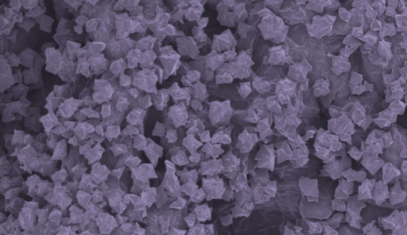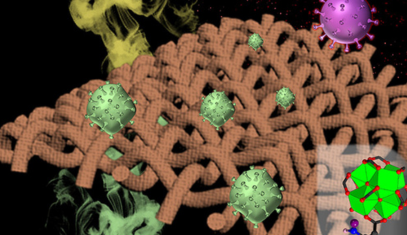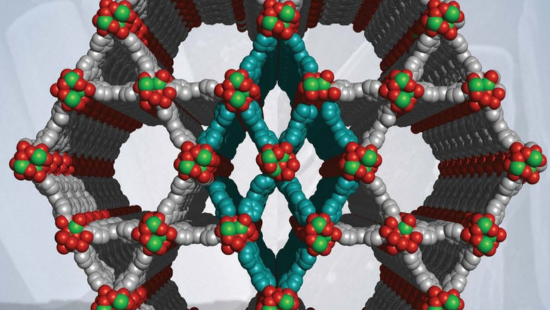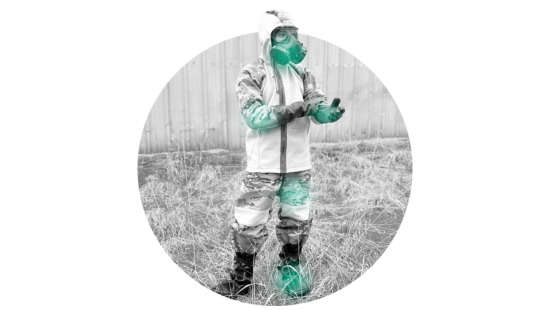
NU Chemistry Impact

Farha Group Research
From carbon capture to battlefield protection, the Farha Group's work with metal–organic frameworks (MOFs) is reshaping what science can do for society
Basic research at universities plays a foundational role in driving innovation and advancing societal well-being. It enables the exploration of bold scientific ideas that, over time, evolve into technologies with profound human impact. Imagine a first responder entering a hazardous area, protected by technology developed in our labs, or a community breathing cleaner air thanks to Northwestern research.
The chemistry department at Northwestern University has emerged as a global leader in materials chemistry, particularly through its groundbreaking work on metal–organic frameworks (MOFs). Think of MOFs as programmable sponges with customizable building blocks that can trap toxic chemicals, store clean fuels, or pull carbon from the air. These highly porous, crystalline structures, which are built from metal oxide clusters and organic linkers, offer extraordinary precision and tunability, making them ideal for addressing pressing challenges in energy, environment, and human safety. Northwestern researchers have developed MOFs that serve as powerful platforms for carbon capture, chemical detoxification, and clean energy storage. Their work has also led to enzyme-inspired MOFs capable of neutralizing deadly chemical weapons like the nerve agent sarin gas, with enhanced stability and performance across a wide range of conditions.
These scientific advances have rapidly transitioned into impactful applications. For example, the department's work contributed to the development of “Detoxification by the Yard,” a technology now deployed commercially through Numat’s SENTINEL™ platform to enhance safety in extreme operational environments. This translation of fundamental research into real-world solutions highlights the critical role academic science plays in developing technologies that protect lives, advance sustainability, and strengthen global resilience. This is just the beginning – we hope to expand this work into clean energy, national safety, and climate resilience in the next 5 to 10 years.
Real World Applications
The Science Behind the Application


A rare feat: Material protects against both biological and chemical threats
Tedx Talk
Combatting Nerve Agents with Nanotechnology | Omar Farha


